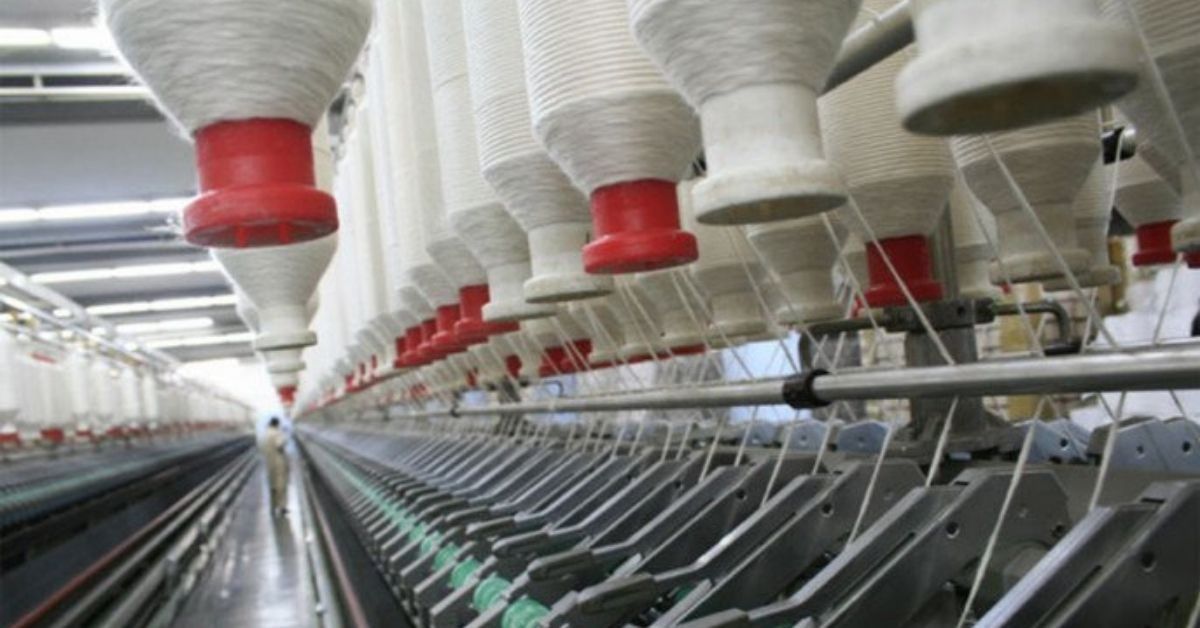A major crisis is brewing in spinning mills of Coimbatore as industry associations have decided to stop production and sale of yarn from July 15 due to heavy losses incurred by them. This was decided at an emergency meeting of MSME Spinning Mills Associations held on Wednesday.
For the first time in the last 20 years, export of yarn and textiles have declined by around 28 per cent. Today, cotton price per candy (356 kg) is ₹58,000; price of 40’s yarn is ₹235 per kg and clean cotton cost is ₹194 per kg, says a joint statement issued by S Jagadesh Chandran, Hony Secretary, South India Spinners Association (SISPA) and G Subramaniam, President, India Spinning Mill Owners Association (ISMA), both based in Coimbatore.
As per guidelines of South Indian Textile Research Association, the minimum conversion cost of cotton to yarn should be ₹2 per kg. In today’s situation, the conversion cost from cotton to yarn is only ₹1. This means, spinning mills incur a loss of ₹40 per kg. A mill having about 10,000 spindles would produce 2,500 kg of yarn per day, which is incurring a loss of ₹1,00,000 per day.
The reason for the crisis is due to 11 per cent import duty on cotton, the price of domestic cotton is 15 per cent higher. India has lost many international orders and is unable to compete with neighbouring countries in the export of yarn, fabric and clothing.
Over the past several months, banks’ interest rates have gradually increased from 7.5 per cent to 11 per cent. As a result, the cost of yarn production has increased from ₹5 to ₹6 per kg.
Tamil Nadu Generation and Distribution Corporation (TANGEDCO) increased Retail Tariff Petition for Low Tension Consumers (LT & LT-CT) and High Tension Consumers (HT), Multi Year Tariff and tariff increased during peak hours (Time of the Day – TOD), the production cost of spinning mills has gone up by ₹6, the statement said.
The Centre has provided short-term loans under the Emergency Credit Line Guarantee Scheme (ECLGS) to revive and rehabilitate the industry. However, entrepreneurs who availed this loan have used it to tide over the crisis and for payment of bank dues, electricity charges, labour wages, ESI and PF. The repayments for the ECLGS loan started and this has become an additional burden on the spinning mills and this also increased the cost of production by ₹5 per kg.
There is unrestricted import of yarn and fabrics from countries like China, Vietnam and Bangladesh. Due to this, the entire textile value chain of the country has been greatly affected, the statement said.
The two associations appealed to the Centre to immediately withdraw the 11 per cent import duty imposed on cotton and reduce the interest rates of the banks to the previous level of 7.5 per cent.
The outstanding short-term loan of ‘Emergency Credit Line Guarantee Scheme (ECLGS) be restructured and provide fresh ECLGS loan as given earlier. Provide a six month holiday period and seven years repayment period at a lower rate of interest.
The Centre should extend the term loan by two year moratorium and restructure the existing term loan as given in the past. There should not be any stringent rules by the Reserve Bank of India (RBI) in moratorium for the spinning sector.
Further, no subsidy or concession should be encouraged by any State Government to increase the spinning capacity, they said.
The Minimum Support Price (MSP) operation has to be extended to Cotton Yarn. The MSP has to be fixed at atleast Rs. 2.25 Paisa per count per kg. From January 1, the associations requested that all types of fabrics manufactured in India should print the precise weight on the fabric.
“We request the Government of Tamil Nadu should cancel the amendment immediately,” the statement said.
At present, TANGEDCO is charging 90 per cent of Maximum Demand charges or Recorded demand, whichever is higher. Considering the Extra Ordinary situation of the Spinning Industry, the associations requested the State government to direct the TANGEDCO to collect 20 per cent of Maximum Demand Charges or recorded demand.
In India, the capacity of spinning mills is already very high. The Centre should immediately formulate a One Country – One policy for the textile industry, the statement said.







